December 15, 2021 •
Get Foreign Money Out of U.S. Elections Act Introduced in US House
On December 14, U.S. Rep. Jamie Raskin introduced the Get Foreign Money Out of U.S. Elections Act. House Bill 6283 would prohibit political expenditures from any business entity in which a foreign directly or indirectly owns or controls or otherwise […]
On December 14, U.S. Rep. Jamie Raskin introduced the Get Foreign Money Out of U.S. Elections Act.
House Bill 6283 would prohibit political expenditures from any business entity in which a foreign directly or indirectly owns or controls or otherwise holds direct or indirect beneficial ownership of 50 percent or more of the voting shares, total equity, membership units, or other applicable ownership interests of the entity. The prohibitions would extend for domestic business entities that are foreign-owned, foreign-controlled, foreign-influenced or all three.
Previous versions of the bill were introduced in the last two sessions of Congress, but ultimately did not pass.
July 8, 2021 •
U.S. House Bill Would Require Corporations to Disclose Political Activity Expenditures to Shareholders
On July 6, legislation was introduced in the U.S. House of Representatives that would require corporations to disclose to their shareholders the amounts disbursed for certain political activity. H.R. 4359, introduced by Rep. Matt Cartwright, was referred to the Ways […]
On July 6, legislation was introduced in the U.S. House of Representatives that would require corporations to disclose to their shareholders the amounts disbursed for certain political activity.
H.R. 4359, introduced by Rep. Matt Cartwright, was referred to the Ways and Means and House Administration committees.
Rep. Marcy Kaptur and Rep. Adam Schiff are cosponsors of the bill.
February 1, 2021 •
Republican Adrian Dickey Wins Special Election for Iowa Senate District 41
Republican Adrian Dickey won the special election to fill the vacant Senate District 41 seat. Dickey will fill the seat for the two years remaining in the four-year term of former Sen. Marianette Miller-Meeks. Miller-Meeks resigned after winning a seat […]
Republican Adrian Dickey won the special election to fill the vacant Senate District 41 seat.
Dickey will fill the seat for the two years remaining in the four-year term of former Sen. Marianette Miller-Meeks.
Miller-Meeks resigned after winning a seat in the U.S. House of Representatives.
The congresswoman was certified by Iowa as the winner by six votes out of nearly 400,000, and provisionally seated pending the outcome of a challenge by her Democratic opponent, Rita Hart.
Republicans have controlled the House, Senate, and governor’s office for five years.
January 4, 2021 •
US Congress Starts New Session
On January 3, the United States House of Representatives began the first session of the 117th Congress. Rep. Nancy Pelosi won her fourth election as speaker of the House by 216 votes to 209 votes. Of the 435 seats in […]
On January 3, the United States House of Representatives began the first session of the 117th Congress.
Rep. Nancy Pelosi won her fourth election as speaker of the House by 216 votes to 209 votes. Of the 435 seats in the House, the Democrats lead with a slim majority of 222 seats.
Pelosi stated the lawmakers’ “most urgent priority will continue to be defeating the coronavirus,” according to the New York Times.
The U.S. Senate also officially met in a pro forma session to begin its two-year period of legislative business. On January 5, the Georgia election for its two U.S. Senators will decide which party controls the Senate.
March 15, 2019 •
Internet of Things Cybersecurity Improvement Act of 2019 Bill Introduced in US House

Vendors selling internet-of-things (IoT) to the federal government may soon be required to follow certain security guidelines concerning those devices. House Bill 1668, the Internet of Things Cybersecurity Improvement Act of 2019, introduced into the U.S. House of Representatives on […]
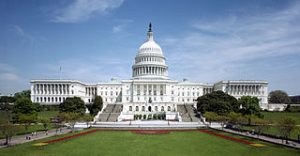 Vendors selling internet-of-things (IoT) to the federal government may soon be required to follow certain security guidelines concerning those devices.
Vendors selling internet-of-things (IoT) to the federal government may soon be required to follow certain security guidelines concerning those devices.
House Bill 1668, the Internet of Things Cybersecurity Improvement Act of 2019, introduced into the U.S. House of Representatives on March 11, would require all federal contracts involving the purchase and use of internet-connected devices meet certain security requirements to better ensure these devices are secure against cyber-attacks.
The legislation requires contractors and vendors providing internet-of-things devices to the U.S. government adopt coordinated vulnerability disclosure policies, so that if a vulnerability is uncovered, that information is disseminated.
The bill also requires the National Institute of Standards and Technology (NIST) to issue recommendations addressing, at a minimum, secure development, identity management, patching, and configuration management for IoT devices.
Additionally, the legislation directs the Office of Management and Budget (OMB) to issue guidelines for each agency consistent with the NIST recommendations and mandates the OMB with reviewing these policies at least every five years.
“As the government continues to purchase and use more and more internet-connected devices, we must ensure that these devices are secure. Everything from our national security to the personal information of American citizens could be vulnerable because of security holes in these devices,” said the bill’s sponsor, Congresswoman Robin Kelly, in her press release.
January 7, 2019 •
Pennsylvania’s 37th Senate District Special Election Set for April 2
Pennsylvania Lt. Gov. Mike Stack announced a special election to fill the vacancy in the 37th Senate District. The seat became open with the election of Guy Reschenthaler to the U.S. House of Representatives. The district includes suburbs in western […]
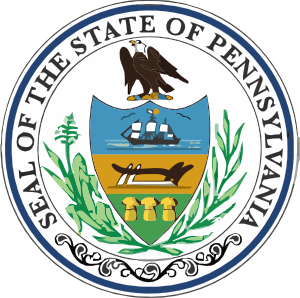 Pennsylvania Lt. Gov. Mike Stack announced a special election to fill the vacancy in the 37th Senate District.
Pennsylvania Lt. Gov. Mike Stack announced a special election to fill the vacancy in the 37th Senate District.
The seat became open with the election of Guy Reschenthaler to the U.S. House of Representatives.
The district includes suburbs in western and southern Allegheny County as well as part of Washington County.
February 23, 2018 •
US House Bill Seeks to Regulate Presidential Inaugural Committee Spending
A bill introduced this month in the U.S. House of Representatives would require presidential inaugural committees to file disbursement reports with the Federal Election Commission. The initial report would be due 90 days after the date of the presidential inaugural […]
 A bill introduced this month in the U.S. House of Representatives would require presidential inaugural committees to file disbursement reports with the Federal Election Commission. The initial report would be due 90 days after the date of the presidential inaugural ceremony, with subsequent reports due not later than 60 days after each date by which the committee makes disbursements in an aggregate amount of $100,000 or more.
A bill introduced this month in the U.S. House of Representatives would require presidential inaugural committees to file disbursement reports with the Federal Election Commission. The initial report would be due 90 days after the date of the presidential inaugural ceremony, with subsequent reports due not later than 60 days after each date by which the committee makes disbursements in an aggregate amount of $100,000 or more.
House Resolution 5008 also prohibits committees from disbursing funds for purposes unrelated to the inauguration of the president. If any leftover funds of the committee remain available at the time of the termination of the committee, the committee must donate those funds to a 501(c)(3) of its choice.
Rep. Kurt Schrader, who introduced the legislation, said in a press release, “We have laws that regulate campaign finance and political action committees. But there is nothing on the books to dictate how money for the presidential inaugural committee, which is raised under the name of the president of the United States, can or cannot be spent. That’s wildly unacceptable.”
October 24, 2017 •
Pennsylvania Governor Announces Special Election for Congressional Seat
Gov. Tom Wolf announced a special election for the 18th U.S. House District will be held on March 13, 2018, in order to fill the remainder of Rep. Tim Murphy’s term. There is no special primary election, so each party […]
 Gov. Tom Wolf announced a special election for the 18th U.S. House District will be held on March 13, 2018, in order to fill the remainder of Rep. Tim Murphy’s term.
Gov. Tom Wolf announced a special election for the 18th U.S. House District will be held on March 13, 2018, in order to fill the remainder of Rep. Tim Murphy’s term.
There is no special primary election, so each party will select a candidate to run in the special election.
Rep. Murphy resigned last week after it was revealed he had an affair with a married woman and urged her to get an abortion.
July 31, 2017 •
We the People Act of 2017 introduced in US Congress
On July 28, Rep. David E. Price introduced a 252-page bill which would reform campaign finance laws, amend the current federal lobbying laws, and address integrity and transparency problems in the Executive Branch. House Resolution 3537, We the People Act […]
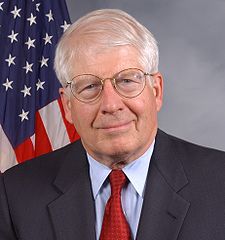 On July 28, Rep. David E. Price introduced a 252-page bill which would reform campaign finance laws, amend the current federal lobbying laws, and address integrity and transparency problems in the Executive Branch.
On July 28, Rep. David E. Price introduced a 252-page bill which would reform campaign finance laws, amend the current federal lobbying laws, and address integrity and transparency problems in the Executive Branch.
House Resolution 3537, We the People Act of 2017, is a comprehensive attempt to address issues such as federal lobbying, campaign finance, redistricting imbalances, and voter eligibility in order to focus on “major structural problems facing our democracy,” according to Price’s press release.
The law would change lobbying registration requirements and no longer exempt an individual who spends less than 20 percent of his or her time serving as a lobbyist for a particular client if he or she meets the other thresholds for registration. In addition, the legislation would require U.S. presidents to divest assets with potential conflicts of interest, require states to allow eligible individuals to register to vote on the same day of a federal election, and replace the Federal Election Commission with a new enforcement agency.
In the bill, other pending legislation currently in Congress dealing with ethics and transparency are referenced and incorporated. The bill also provides suggested solutions to be used in state and local legislative reform efforts.
May 15, 2017 •
501(c)(4) Reform Act of 2017 Introduced in US House
A bill introduced in the U. S. House of Representatives intends to prohibit tax exemptions under Section 501(c)(4) of the Internal Revenue Code for social welfare organizations engaged in political activity. House Bill 2338, the 501(c)(4) Reform Act of 2017, […]
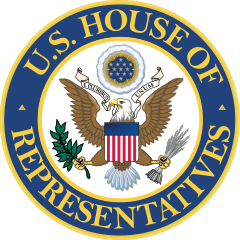 A bill introduced in the U. S. House of Representatives intends to prohibit tax exemptions under Section 501(c)(4) of the Internal Revenue Code for social welfare organizations engaged in political activity.
A bill introduced in the U. S. House of Representatives intends to prohibit tax exemptions under Section 501(c)(4) of the Internal Revenue Code for social welfare organizations engaged in political activity.
House Bill 2338, the 501(c)(4) Reform Act of 2017, amends the Internal Revenue Code to prohibit 501(c)(4) entities from participating in, or intervening in (including the publishing or distributing of statements), any political campaign.
Rep. Michelle Lujan Grisham introduced the legislation on May 3. The bill is currently in the House Committee on Ways and Means.
A revolving door bill introduced in the U.S. House would hold congressional salaries in escrow unless a fiscal budget is passed this week. House Bill 1951, The No Ongoing Perks Enrichment Act (NOPE ACT), which would establish a uniform five-year […]
 A revolving door bill introduced in the U.S. House would hold congressional salaries in escrow unless a fiscal budget is passed this week.
A revolving door bill introduced in the U.S. House would hold congressional salaries in escrow unless a fiscal budget is passed this week.
House Bill 1951, The No Ongoing Perks Enrichment Act (NOPE ACT), which would establish a uniform five-year post-employment ban on lobbying by former members of Congress, also requires the salaries of members of a House be held in escrow if the House has not agreed to a concurrent resolution on the budget for fiscal year 2018 by April 15, 2017.
The bill, introduced by Rep. Tom O’Halleran, additionally eliminates automatic pay adjustments for members of Congress and prohibits the use of funds provided for the official travel expenses of members of Congress and other officers and employees of the legislative branch for first-class airline accommodations. “Congress must act to restore confidence in our government, and that starts by cutting special privileges and promoting transparency,” O’Halleran said in his press release.
January 3, 2017 •
Trump Tweets Tumble House Ethics Change Proposal
Following a rebuke in a series of tweets from President-elect Donald J. Trump and negative public reaction, the vote yesterday by the House Republican Conference to weaken the Office of Congressional Ethics has been reversed. This morning Trump tweeted, “With […]
 Following a rebuke in a series of tweets from President-elect Donald J. Trump and negative public reaction, the vote yesterday by the House Republican Conference to weaken the Office of Congressional Ethics has been reversed.
Following a rebuke in a series of tweets from President-elect Donald J. Trump and negative public reaction, the vote yesterday by the House Republican Conference to weaken the Office of Congressional Ethics has been reversed.
This morning Trump tweeted, “With all that Congress has to work on, do they really have to make the weakening of the Independent Ethics Watchdog, as unfair as it may be, their number one act and priority. Focus on tax reform, healthcare and so many other things of far greater importance! #DTS.” The hashtag #DTS is recognized to stand for the term “drain the swamp.”
House Majority Leader Kevin McCarthy offered a motion to restore the current OCE rules, which was accepted by the conference, according to Politico. Republicans planned to replace the Office of Congressional Ethics with a standing committee called the Office of Congressional Complaint Review, which would report to the House Ethics Committee. The resolution put forward by Republicans would have limited the power of investigation and the independence of the Office of Congressional Ethics.
January 3, 2017 •
House to Vote to Change Congressional Ethics Office
Today, the United States House of Representatives may vote to replace the Office of Congressional Ethics with a standing committee called the Office of Congressional Complaint Review, which would report to the House Ethics Committee. On January 2, the House […]
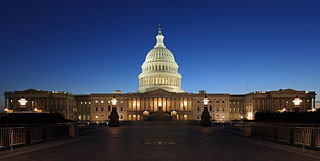 Today, the United States House of Representatives may vote to replace the Office of Congressional Ethics with a standing committee called the Office of Congressional Complaint Review, which would report to the House Ethics Committee. On January 2, the House Republican Conference voted to submit the change, over the objections of Speaker Paul Ryan, according to the New York Times.
Today, the United States House of Representatives may vote to replace the Office of Congressional Ethics with a standing committee called the Office of Congressional Complaint Review, which would report to the House Ethics Committee. On January 2, the House Republican Conference voted to submit the change, over the objections of Speaker Paul Ryan, according to the New York Times.
The resolution put forward by Republicans specifically limits the power of investigation and the independence of the Office of Congressional Ethics. The resolution will be considered today when the representatives vote on their House Rules. The Office of Congressional Ethics was created in 2008 in response to various corruption scandals, including those involving Jack Abramoff, a former lobbyist convicted of conspiracy and wire fraud.
State and Federal Communications, Inc. provides research and consulting services for government relations professionals on lobbying laws, procurement lobbying laws, political contribution laws in the United States and Canada. Learn more by visiting stateandfed.com.

